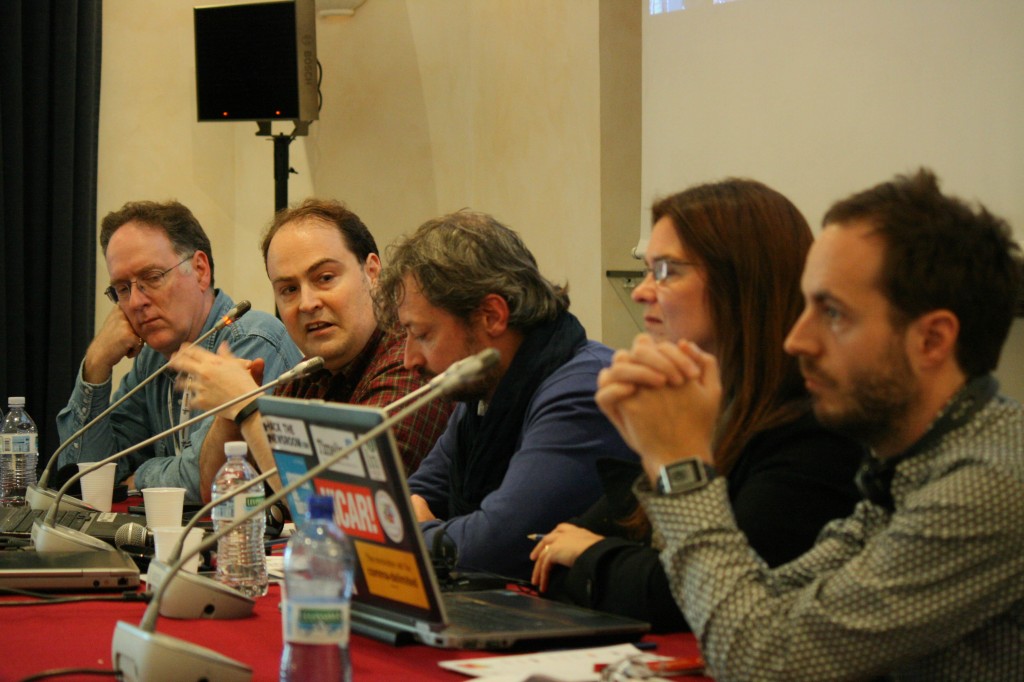
Digital journalism still sparks disputes among journalists. At ‘The Future of All-digital Journalism (part I),’ a panel discussion which took place during the International Journalism Festival, a few of the industry’s top professionals engaged in a heated debate.
Panelists Steve Buttry, editor at Digital First Media, Andrea Iannuzzi, editor at AGL Quotidiani, Mathew Ingram, senior writer at Gigaom, Luke Lewis, editor at Buzzfeed UK, and Angelica Peralta Ramos, multimedia development manager at La Nacion, all have their own understanding of what digital journalism means today. Each one of them managed to distinguish several prominent trends in the development of this constantly changing field.
We sat down with Luke Lewis, UK editor of the quickly growing entertainment outlet Buzzfeed, to pick his brain on the subject of all-digital journalism and its future.
Q: How do you define all-digital journalism?
It’s not a mystery. I think digital journalism is going to thrive the exact same way that traditional journalism thrived in the print age. And I think it’s about investing in original reporting. It’s very clear and very valuable. For the first twenty years of digital journalism the stumbling block was how are going to afford all this, what is the funding model. But now we seem to have worked that out. We’ve got sites like Buzzfeed, Vice and others. All pretty well-funded. This sums that up. So we can afford to invest in original reporting and in-depth form reporting.
Q: Do you include Internet television in all-digital journalism?
Yeah, definitely! I mean at Buzzfeed we don’t produce TV in that sense but video is very important to us. But we mostly focus on short-form videos. These are quite bite-sized, entertaining. They are not long, usually under five minutes. And they sit really well on YouTube. The traffic to the videos that we produce would not be as high as it is, if they were not on the video hosting.
Q: Are social networks a major part of all-digital journalism? Do social networks create news?
Oh, yeah! Absolutely. I think there is a really interesting process going on at the moment. Twitter doesn’t seem to be growing that quickly… If the future is people tweeting the news, it may break into another pattern. But there will always be news happening in social media. The amount may increase, it might migrate more to Internet or end up on WhatsApp. But yeah, definitely, social networks will always be the key to good news.
Q: How does blogging fit into all-digital journalism? Should bloggers have the same professional rights as actual journalists?
Yes, they should. I mean, there is no distinction between a news article and a blog. It’s just a question of who’s the master. Does it just say your name or does it say Buzzfeed or The New York Times? It’s all journalism.
Q: What are the general tendencies of audience reaction to all-digital journalism?
Most readers don’t really care. They don’t think ‘oh, this is a print article and this is a digital article’. They just say ‘this is news that I am interested in’.
By Lillie Mazitova